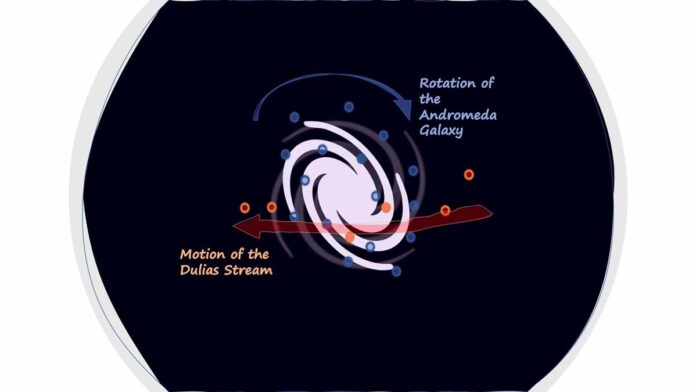The Dulais Structure is the remnants of a massive feeding event in the’recent’ past. It is a dark stream illuminated by star clusters unlike any other in Andromeda. It demonstrates that galaxies grow by ‘eating’ smaller systems, and the findings contradict a more tame picture of galactic growth.
“This raises the question of, well, what was actually consumed?”. “Because it doesn’t appear to be just one thing. It appears to be a collection of things that are slowly being torn apart,” Professor Lewis explained. “Over the last few decades, we’ve realised that galaxies grow by eating smaller systems. So, little galaxies fall in, they get eaten – it’s galactic cannibalism.”
Two major feeding events have been identified in Andromeda. Rough timescales indicate that the’recent’ feast occurred within the last 5 billion years. While the older feed occurred between 8 and 10 billion years ago. The universe is 13.8 billion years old. It is implying that the two separate events may have occurred when matter in the universe was closer together and more densely concentrated.
“We know that the universe was featureless when it was born in the Big Bang. But it is now full of galaxies.” “Did those galaxies come fully formed, or did they evolve?” According to Professor Lewis.
Professor Lewis and other astronomers are studying Andromeda to learn more about how our own Milky Way galaxy evolved. The Earth’s vantage point makes viewing our galaxy difficult because we’re sitting inside it, obscuring observations. But the distance from Andromeda gives scientists a “panoramic view.”
It’s unclear how the Milky Way itself has fed. But a distinct picture is emerging in Andromeda – large feasts and growth spurts. Given that the Milky Way is a spiral galaxy of similar size, the research could help explain how our galaxy grew to be so massive.

